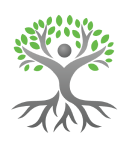April showers bring May flowers, but for many Americans all April brings is an onset of seasonal allergies. The arrival of leaves on trees and blooming flowers means the dreadful ritual of sneezing, runny nose, and red, itchy eyes. The Center for Disease Control estimates that each year, 35 million Americans fall prey to seasonal allergic rhinitis, more commonly known as hay fever. While there’s no cure for spring allergies, Dr. Michael Rothman will advise you on the pitfalls of seasonal allergies, and how you can work to alleviate the symptoms you may feel.
What causes Seasonal Allergies?
Pollen is tiny grains released into the air, in the US mostly by grasses, trees, flowers and weeds. While pollen’s original intention is to fertilize its corresponding plant, when you are allergic to and inhale pollen grains, it haphazardly sends your nervous system into overdrive. Your body mistakes the pollen grains as foreign invaders, which in turn release antibodies, normally saved to kill off bacteria and viruses. While raging this war on pollen, your body releases a chemical called histamine into your blood stream. Histamine is what activates an increased amount of mucous in your sinuses and your dilated blood vessels underlying the cause of your hives and several of your other allergic reactions. In a nutshell, your body’s release of histamine triggers the set of familiar symptoms such as runny nose, itchy, red and watery eyes, and sneezing, that you feel.
Why do I suffer from seasonal allergies?
Simply speaking, every person has a general threshold in which you can tolerate elements in your environment which you are allergic to. When you exceed this threshold, your body reacts and you begin to feel the effects in the form of a runny nose, itchy, red, and watery eyes, and sneezing. Each person’s threshold, in which allergy symptoms begin affecting you, is different and with each day, your threshold can fluctuate as well. Varying factors such as your diet, exercise, and especially your stress can effect where your threshold lies. Think of your body in terms of having a bank account. When you are healthy, you have a lot of metabolic reserves, or money. When you have a ton of money in the bank and you receive a bill, you can easily pay it. But when you lack money in your bank account, it becomes painful to pay each bill. This is true of your body as well. When you have plenty of metabolic reserves and stress comes along, you can deal with those stressors. But when you are run down and exhausted, each stressor, such as allergies, affects your body more severely. Dr. Rothman can help you to understand what additional stressors are depleting your metabolic reserves and how you can work to minimize these stressors and their effects.
Why does my allergy medication stop working after a few weeks?
Your autonomic nervous system helps control your body’s overall metabolic balance. Your autonomic nervous system is made up of two parts, the sympathetic nervous system and the parasympathetic nervous system. These two complementary parts of your nervous system are never both activated, nor are they ever both deactivated. The allergy symptoms you feel are provoked by a reaction to pollen and are affected by an over response of your parasympathetic nervous system (which causes the release of histamine into your system). When you take over the counter and prescription allergy drugs, these medications work by either by stimulating your sympathetic nervous system or down regulating your parasympathetic nervous system. Therefore, under the influence of these anti-allergy drugs your overall autonomic nervous system balance is shifted away from your parasympathetic nervous system and toward your sympathetic nervous system. However, you must think of your autonomic nervous system as constant pendulum. What goes up must come down, and you will eventually experience what is known as a “rebound effect” where your parasympathetic system turns on even more severely than originally. For example, have you ever used a nasal spray to alleviate your stuffy nose? Did you notice that your stuffy nose came back, and worse? Those worsening symptoms are the result of this “rebound effect” of the allergy drugs that over time actually overstimulate your parasympathetic nervous system.
What is a natural cure for seasonal allergies?
When you go to the local pharmacy or health food store and ask for something “all natural” to take for your seasonal allergies, they may recommend an amino acid called tyrosine. Tyrosine is a common component found in chicken, turkey, fish, nuts, milk, cheese, and bananas, when metabolized, stimulates your sympathetic nervous system and may help reduce allergy symptoms. However without truly treating the root cause of the allergic reactions you are experiencing to pollen, you will likely continue to medicate and try every drug (both “over the counter” and prescription) and herbal remedy desperate to minimize your symptoms. And in some cases, you may realize the adverse effects of sampling these various substances.
How can I find out what is causing my seasonal allergies?
To find the underlying cause of why you are reacting so severely to pollen in your environment, you must identify whether the underlying imbalance in your body is within your autonomic nervous system, immune system, or hormone system. When you come in for a consultation with Dr. Rothman, he will run a series of tests to measure your body chemistry. In women, for example, Dr. Rothman will measure your estrogen levels. If you have high estrogen while simultaneously exhibiting low progesterone, then you are suffering from a hormonal imbalance called estrogen dominance. This very common hormonal problem, can contribute to an up regulation of your parasympathetic nervous system. This excess parasympathetic tone can lead your body to release more histamine. To make matters worse, if you release more histamine, this will result in an increase in your parasympathetic tone. This situation will create a vicious cycle in which your nervous system, your hormones, and your immune system become more and more unbalanced and your allergy symptoms will get worse and worse. To reduce estrogen dominance (and therefore excess parasympathetic stimulation) Dr. Rothman would suggest that you remove estrogenic pollution from your diet, encompassing any and all insecticides, pesticides, plastics and soy-based foods. Eating a diet of organic foods, free from insecticides and pesticides, would greatly help your overall well-being and the symptoms you feel from an estrogen dominant, overactive parasympathetic system. Dr. Rothman would also advise you to stop ingesting sugars and sweets because every time you intake sugary substances, your blood sugar rises, also resulting in stimulation of your parasympathetic nervous system.
How do I decrease my seasonal allergy symptoms?
Your allergy symptoms are most likely to manifest when your body can no longer maintain proper balance (homeostasis). Since loss of your metabolic balance results from a reduction of your vital reserves and since your vital reserves are depleted by excess stress, the best way to reduce your allergy symptoms is to reduce the overall stress load on your body. In the simplest form, you must reduce excess stress on your body, stress in the form of fried foods, insecticides, pesticides, sugars, devitalized foods, plastics, excess work, lack of sleep and countless other stressors.
How can Dr. Rothman help?
While many Americans dread the onset of spring, allow yourself to take the necessary steps to prepare for paying the big bill, manifesting as allergies. Only by working with Dr. Rothman, can you find a healthy, natural way to minimize your stressors, bring balance to your autonomic nervous system, and continue to make informed, healthy deposits into your metabolic bank account.
Are you suffering from seasonal allergy symptoms? Come in for a consultation with Dr. Rothman by calling, 732-268-7663 and discover the root cause of your seasonal allergies.











